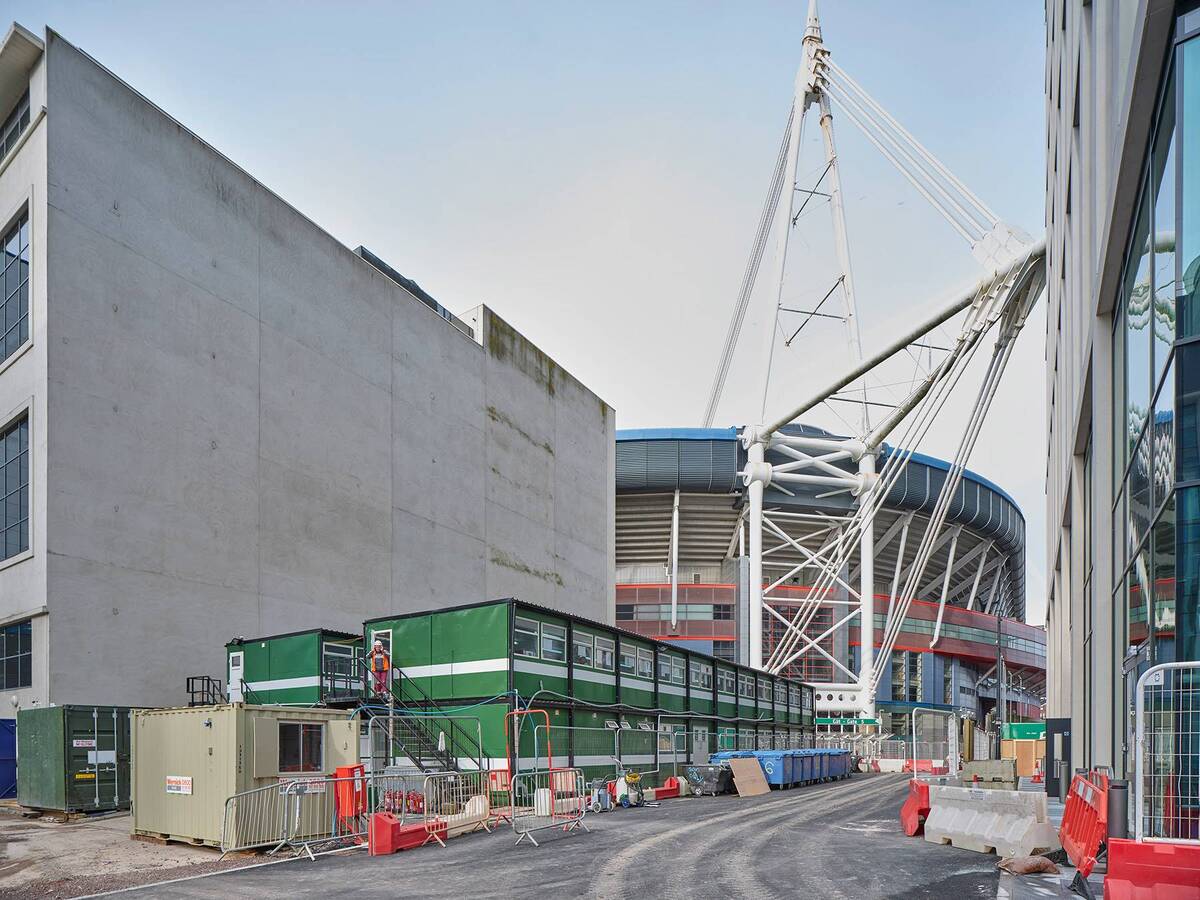Gareth Parkes: Building data-driven projects at Sir Robert McAlpine
Gareth Parkes is responsible for the data and analytics function within Sir Robert McAlpine, the 150-year-old private UK construction firm. In a sector better known for rivets than pivot tables, it is a role that offers a huge opportunity for transformation. He spoke to DataIQ about building a new approach for the company and the industry as a whole.

DataIQ (DIQ): First of all, please tell us about your role at Sir Robert McAlpine (SRM). What does it encompass?
Gareth Parkes (GP): I lead the data and analytics function for SRM. My role is to set the strategy, build data capabilities, evangelise for better use of our data assets and ensure that we can deliver for the business.
DIQ: Is data part of the vision for the business? What is the opportunity for it within SRM?
GP: Absolutely, yes. We see the opportunity for data to inspire, to bring about change in the tasks individuals perform, as well as at a project level, across the business, across the sector and across project delivery. Our work attempts to knit these multiple horizons together.
DIQ: At an industry sector level, how well does construction currently use data? What issues do you see around its wider adoption?
GP: As an industry, construction is poor at using data and lags behind most (if not all!) other sectors in terms of digital adoption. But it goes beyond that. The entire project delivery sector has a long way to go to make best use of its data.
A study by Bent Flyvbjerg and Alexander Budzier from Said Business School reviewed 12,000 projects across multiple industries (construction and infrastructure being a large component) and found that only 1 in 200 is delivering to time, cost and the benefits defined at the start. That’s 0.5% of projects! And there are many more opportunities for us to make better use of data to change this.
Only 1 in 200 projects is delivering to time, cost and predicted benefits
The adoption issue is very tricky because it relies on people, with all our differences, perceptions, behaviours and idiosyncrasies. It is absolutely vital that this happens in a way that people feel ownership of the solutions. Otherwise, it just doesn’t work.
So, to change the sector, I believe we need to start with changing our behaviours as individuals. We need to feel inspired. We need to have the tools available to us to make change happen for ourselves. We need the space to play, to try and to fail, and always to learn and get better. Too often, we see well-intentioned top-down initiatives fail because they aren’t winning hearts and minds - all the classic change management stuff.
And typically, we’re not very good at getting adoption to work on projects because they are seen as unique. The data tells us that projects have far more in common than actually keeps them apart. There’s a great connection between people and projects. We anthropomorphise projects: bringing them to life helps us to deliver them, but it also creates a feeling that each is unique.
The same is true of us as individuals and as communities – each project takes on its own culture. The challenge almost becomes to disassociate the project from the rich and rewarding culture that exists to deliver it. How can we use data to break the connection and build back even more productive teams and better working environments? A top-down approach to make all cultures adopt data-enabled thinking is doomed to failure because perceptions of the challenges and priorities are so different.
Another big issue preventing innovation in the sector is access to data. There’s still a pervading sense of “it’s my data and I’m going to keep all the analytics to myself”. This is just an outdated mindset. You only need to look at the government’s national data strategy to see the tide is turning. As Oliver Dowden, Secretary of State for Digital, Culture, Media and Sport, says in the foreword: "Under this strategy, data and data use are seen as opportunities to be embraced, rather than threats against which to be guarded."
When data is everywhere, it’s how you collaborate with it that sets you apart.
DIQ: How are you setting about tackling this, firstly, within the business and, secondly, for the sector?
Did you find this content useful?
Thank you for your input
Thank you for your feedback
DataIQ is a trading name of IQ Data Group Limited
10 York Road, London, SE1 7ND
Phone: +44 020 3821 5665
Registered in England: 9900834
Copyright © IQ Data Group Limited 2024
 David Reed
David Reed